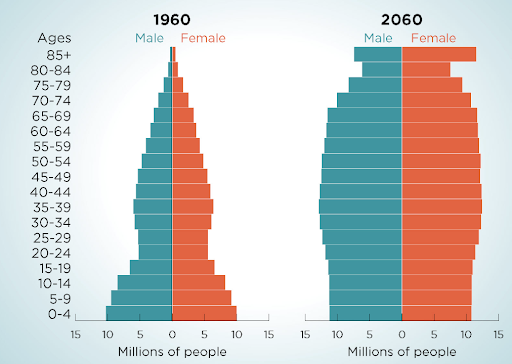Source: Three Big Things: The Most Important Forces Shaping the World | Collaborative Fund, by Morgan Housel
An irony of studying history is that we often know exactly how a story ends, but have no idea where it began.
…
Every current event – big or small – has parents, grandparents, great grandparents, siblings, and cousins. … Those roots can snake back infinitely. But the deeper you dig, the closer you get to the Big Things: the handful of events that are so powerful they influence a range of seemingly unrelated topics.
The world is driven by tail events. A minority of things drive the majority of outcomes. … World War II, World War I, and the Great Depression influenced nearly every important event of the 20th century. Industrialization and the Civil War did the same in the 19th.
Demographics, inequality, and information access will have a huge impact on the coming decades.
A demographic shift that reconfigures modern economies.
Wealth inequality that’s grown for four decades hits an inevitable breaking point. … The takeaway is that power is transitory. It shifts when those who don’t have it get so fed up that they bond together to gain enough influence to take it back. Never underestimate the power of a unified group of powerless people with a shared goal. If you accept this premise, then what’s happened over the last 40 years is a Big Thing. … I don’t know where it ends up, but the federal government of, say, 1960 was unrecognizable to that of 1920. The Great Depression and World War II triggered most of that change, but the enduring social changes of that period were centered around supporting lower-income groups after the epic Gilded Age.
Access to information closes gaps that used to create a social shield of ignorance. … The telephone eliminated the information gap between you and a distant relative, but the internet has closed the gap between you and literally every stranger in the world. … Michael Arrington recently wrote: “I thought Twitter was driving us apart, but I’m slowly starting to think half of you always hated the other half but never knew it until Twitter.” This is a good point that highlights something easy to overlook: 1) everyone belongs to a tribe, 2) those tribes sometimes fundamentally disagree with one another, 3) that’s fine if those tribes keep their distance, 4) the internet increasingly assures that they don’t.
…
In effect, credentialism is melting away. I don’t care who you are or what your job title is. If you have a good idea, I want to hear it. Of course the flip side of this is dangerous, as the maniac shouting the loudest often gets the attention.
…
A third shift is that it is now harder to hide behind, yet easier to spread, false and misleading information. I don’t know how to reconcile that contradiction, but you see both everywhere.
